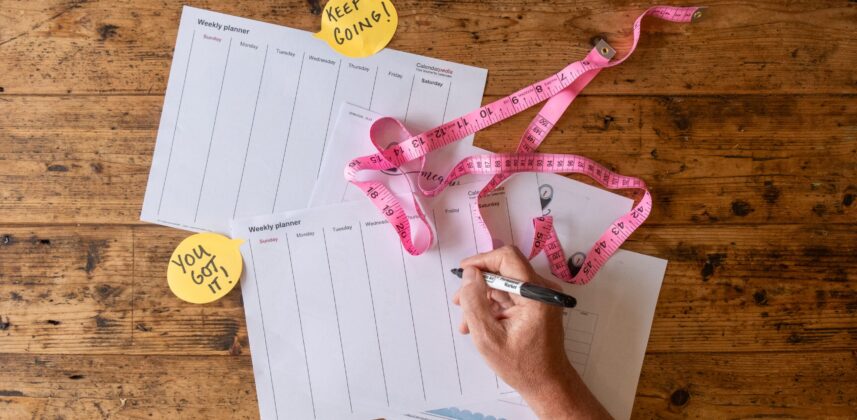Why sleep and stress affect weight loss – and how to build better self-care habits on weight loss drugs
Peter Paumgardhen | Last update: 8th October 2025
If you’re using weight loss medication like Wegovy or Mounjaro, your diet and dose are only part of the story. Poor sleep and unmanaged stress can quietly sabotage your progress, disrupting hormones, driving cravings, and sapping your willpower.
The good news? Small self-care shifts can improve sleep, lower stress, and help your body respond better to treatment.
This article explains how sleep and stress affect your weight, and shares practical self-care routines to help you stay calm, consistent, and well-rested on your weight loss journey

How sleep affects weight loss
Quality sleep is just as important as what you eat, and many experts now say it’s the missing link in long-term weight control.
What happens when you’re not sleeping enough:
- More hunger, less fullness: Poor sleep increases ghrelin (hunger hormone) and lowers leptin (fullness hormone)
- Increased cravings: Especially for sugar, carbs and high-fat comfort foods
- Slower metabolism: Sleep deprivation raises cortisol (your stress hormone), which slows calorie burn and encourages fat storage
- Weaker willpower: Lack of sleep makes it harder to say no to snacks or stick to goals
- Less movement: You’re more tired during the day, which can reduce physical activity
“Once I started sleeping better, I noticed my appetite was way more manageable – I wasn’t hunting for snacks the minute I woke up.” SlimrChat user
How stress affects weight loss
Chronic stress can quietly unravel your progress. Here’s how:
What stress does to your body:
- Raises cortisol, which signals your body to store belly fat and slows your metabolism
- Increases cravings for sugary, high-fat foods
- Triggers emotional eating — food becomes comfort or escape
- Disrupts your sleep, which increases hunger and decreases decision-making power
- Breaks your healthy routines, like meal prepping or exercising
Research shows that stressed people can burn fewer calories after a meal — and produce more insulin, encouraging fat storage.
Self-care strategies to manage stress
| Strategy | How it helps |
| Practice relaxation daily | Try deep breathing, yoga, or meditation to calm the nervous system and reduce stress hormones |
| Move your body | A brisk walk or light workout helps burn off nervous energy and boosts mood (plus it burns calories) |
| Eat mindfully | Slow down, chew, and eat without screens to avoid emotional eating traps |
| Use a journal or affirmations | Reflecting daily or writing positive reminders helps you stay focused on what matters |
| Reframe your stress | Try viewing challenges as temporary and manageable – not personal or permanent |
| Build support | Talk to friends, family or your doctor. Social support and CBT techniques help prevent overwhelm |
| Hydrate first | Cravings are often confused with dehydration; drink water before reaching for snacks |
Sleep hygiene tips for better weight loss results
| Strategy | How it helps |
| Stick to a sleep schedule | Go to bed and wake up at the same time daily – your brain loves routine |
| Create a sleep sanctuary | Cool, dark, and quiet rooms promote melatonin and deeper rest (ideal temp: 18°C/65°F) |
| Limit screens before bed | Blue light reduces melatonin – switch off phones/TV 60 mins before sleep |
| Avoid late meals & caffeine | Finish eating 2–3 hours before bed, and avoid caffeine after 2pm |
| Brush your teeth early | It signals to your brain that food is finished for the day |
| Try a light walk after dinner | Helps with digestion and improves blood sugar control before bed |
How weight loss drugs affect sleep and stress
GLP-1 medications change how your body processes hunger and blood sugar. They can also have unexpected effects on your mood and sleep cycle:
- Some people feel tired or sluggish, especially early in treatment – read more in Feeling exhausted on weight loss drugs?
- Others find they’re more energised once the body adjusts and food choices improve
- Low energy might be due to undereating – see Feeling tired? It might be your diet
- Stress around slow progress or side effects can derail motivation – see Mistakes to avoid on GLP-1s
Sleep and stress aren’t “extra” parts of your plan; they’re core pillars that affect every area of progress.
Final word from SlimrChat
Losing weight isn’t just about eating less – it’s about giving your body what it needs to function well. And that includes rest and resilience.
You don’t need to be perfect but aiming for better sleep and lower stress can help your medication work better, reduce cravings, and keep you motivated for the long haul.
Need help with routines, accountability, or finding your rhythm? Join our SlimrChat community and get real advice from people who are on the same path.